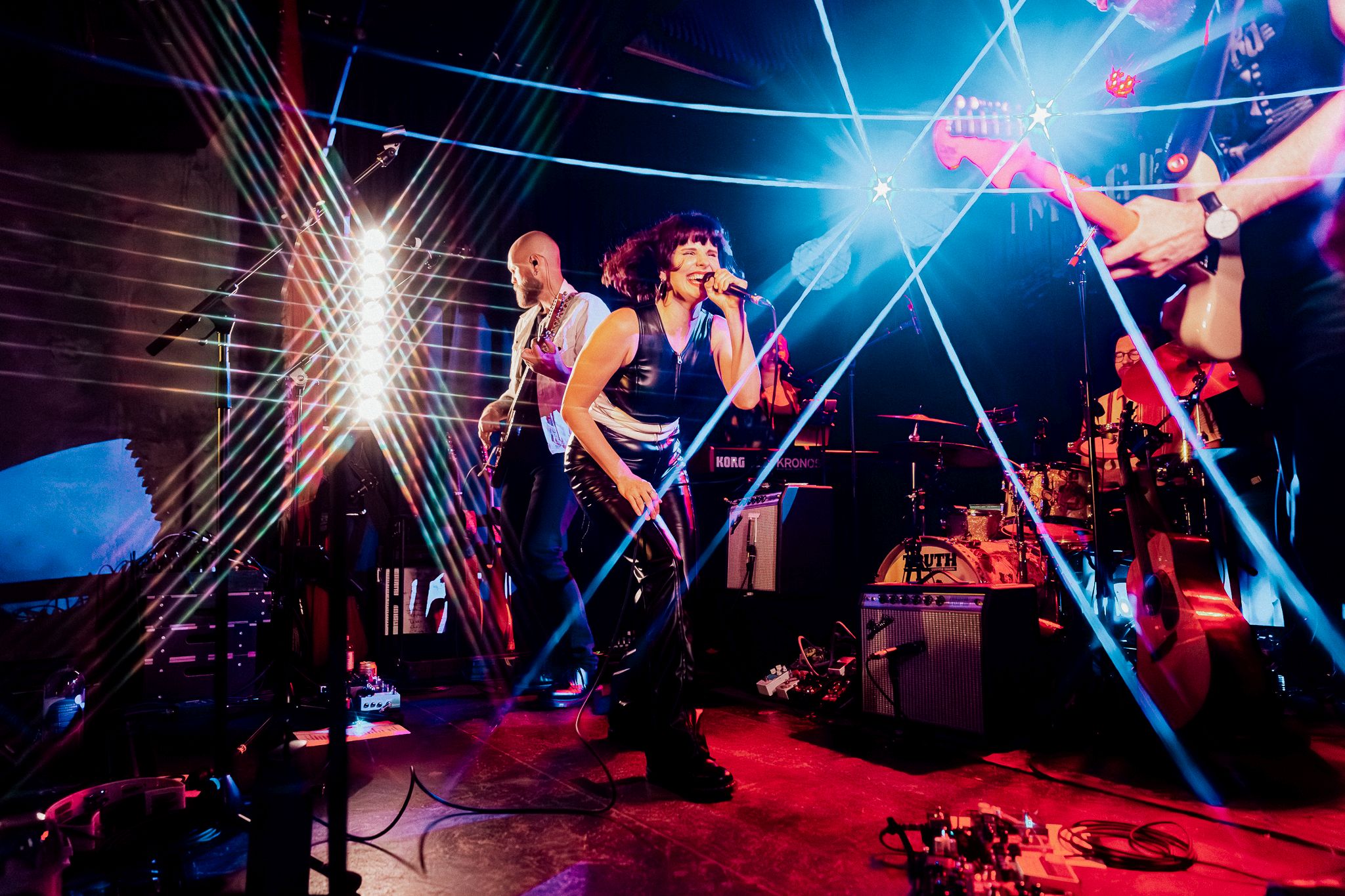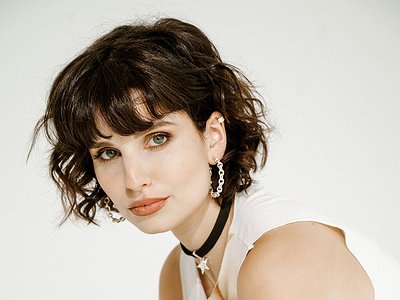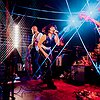Name: Imogen Clark
Occupation: Singer, songwriter
Nationality: Australian
Current release: Imogen Clark's new single “Big One” is out now. It is the third single off her upcoming new full-length album The Art of Getting Through, scheduled for release May 31st 2024. Pre-save the album here, and pre-order a physical copy here.
Pure vocal music recommendations: One of my favourite acapella songs is “Meet Me in the Middle” of the Air by Paul Kelly. There is something so hauntingly beautiful about hearing just someone’s voice with no instrumentation behind it. There are no distractions and nothing clouding the sentiment of the lyrics. You can hear so much more in a person’s vocal tone and you’re forced to focus only on the story. Sometimes it feels almost like a religious experience to hear a song this way – this Paul Kelly song has that quality for me.
If you enjoyed this Imogen Clark interview and would like to know more about her music, visit her official homepage. She is also on Instagram, Facebook, twitter, and toktok.
For a deeper dive, read our earlier Imogen Clark interview about her creative process.
Do you think that some of your earliest musical experiences planted a seed for your interest in your voice and singing? How and when did you start singing?
My Dad had a band when I was a kid and played around, so music always felt like something normal people did.
There are photos of me as a baby wearing giant headphones – while Dad was working on his songs at home, I’d sit and listen, crying when he paused the song. There are also so many videos of him singing to me as a baby, so it was just a part of my life from the word ‘go’, and Dad was never precious about letting my brother and I play his instruments.
Mum and Dad both had great music taste – we’d listen to everything from Led Zeppelin to Simon and Garfunkel and Martin Sexton – which has led to me having quite an eclectic music taste and range of influences.
When I was eight, my cousins and I put on a little play for my extended family and I sang. My Dad noticed my voice and helped get me lessons, so I leanred to sing classically for the next ten years.
If you're also playing other instruments, how does the expressive potential of these compare to your own voice?
I play guitar and piano as my main instruments and I really enjoy playing these and the songwriting capabilities they afford me.
That being said, singing has always been my number one and everything else has come second to it. Singing is the most cathartic and therapeutic thing in my life, and I feel lucky to have found it so young.
Singing is an integral part of all cultures and traditions. Which of these do you draw from – and why?
My Dad came to Australia from England when he was young, but his English roots have always remained, especially when it comes to his music taste.
I was raised on a healthy diet of British rock, from Led Zeppelin to The Jam, and I think these bands definitely influenced my style as I grew and began writing songs myself.
What were some of the main challenges in your development as a singer/vocalist? Which practices, exercises, or experiences were most helpful in reaching your goals – were there also “harmful” ones?
My late singing teacher Aleda Johnsen in Western Sydney was such an important start to my career and taught me technique that I’m still so grateful for to this day.
Aleda became like another grandmother to me. She was strict but fair and watched me grow from a child to a young adult in the time I was her student. I learned how to maintain my voice when singing for long periods of time and how to use diction. Learning Italian arias and competing in local singing eisteddfods challenged me and helped me learn about stage presence and dealing with nerves.
A vocal technique I love to use in my songs is flipping between my chest and head (or falsetto) voice. That’s something I feel comfortable doing because my head voice was what I mainly used when I used to sing classically (an example of this technique is in my song “Forget About London”). It’s all knowledge that’s muscle memory to me now and I have Aleda to thank.
How do you see the relationship between harmony, rhythm and melody? Do you feel that honing your sense of rhythm and groove has an effect on your singing skills?
Most definitely. There are certain styles of singing which are percussive and full of feel.
One of my favourite bands at the moment is Haim, whose lead vocalist Danielle Haim has this way of singing that is so rhythmic and playful.
Another of my current favourite bands is Muna, whose singer Katie Gavin is the same – she has this deep, resonant voice but when she’s staccato with it, it feels so satisfying and infectiously cool.
Both Haim and Muna’s music was a big influence on me during the writing of my new record The Art of Getting Through, which is out on May 31. In particular, my latest single off the new record, “Big One,” was hugely inspired by my love of these bands and their use of rhythm and harmony to create this contemporary synth pop sound, with vulnerable songwriting at its core.
What are the things you hear in a voice when listening to a vocalist? What moves you in the voices of other singers?
What gets me is when a singer is full of raw emotion that seeps out in their voice.
Martin Sexton is a great example of this. I grew up listening to his record The American and I remember his vocals being a lesson for me about how passion is the most important part of a vocal delivery.
At some points in his album, his voice just soars in a way that’s visceral and heart-wrenching. You can feel it in your gut – it’s primitive. That’s the kind of singer I adore and the kind of singer I try to model myself on.
How would you describe the physical sensation of singing? [Where do you feel the voice, do you have a visual sensation/representation, is there a sense of release or tension etc …]
Singing definitely represents a release of tension for me. I feel it in my gut and my chest, but also resonating behind my face, and it’s incredibly good at helping me ease my anxious feelings. It envelopes my entire body when I sing and photos of me on stage always make me laugh because I’ve often got my head thrown all the way back and my mouth wide open with eyes shut.
It’s not an act – it’s what I actually have to do to open myself up to get the belting notes out, and to convey the emotion I’m trying to communicate in the song. It’s a highly physical and focused act for me; if I’m not focused and putting my whole body into it, it doesn’t come out right.
What kind of musical settings and situations do you think are ideal for your own voice?
I have been lucky recently to play in a lot of beautiful theatres around Australia opening for BOWEN * YOUNG and I find those kinds of venues so great for what I do.
In my solo mode especially, my vocals are always the thing I want to be front and centre for my set. I feel like a typical set for me is all about storytelling and letting an audience into my innermost fears and anxieties, so playing in theatres is always a perfect place to do that because you feel connected to the crowd in this intimate setting.
I’ve been playing the last song of my set every night completely unplugged in the room and it always feels so personal and beautiful. It’s a song I wrote with Jim Lauderdale called “If Your Heart Never Breaks,” but you’ll have to wait for the record to hear it!
We have a speaking voice and a singing voice. Do these feel like they are natural extensions of each other, ends on a spectrum or different in kind?
I definitely feel like your singing voice should be a natural extension of your speaking voice.
People have different opinions on this which is totally fine, but my personal taste is that I love hearing people sing in their real voice without putting on some kind of affectation or accent. When people put on a different voice, it feels false or less believable to me, almost like they’re playing a character and not themselves.
One of the singles off my new record “All Hard Feelings” is the song where I feel most like me – the lyrics are conversational and when I sing it live, I almost feel like I’m talking (or screaming) it to a friend over a glass of wine.
Imogen Clark Interview Image by Ruby Boland
From whispers to screams, from different colours to dynamics, what are the potentials and limits of your voice? How much of your vocal performance can and do you want to control?
Vocal control is really important to me as I tend to write songs with a really large range. They’ll go right from the lowest parts of my range to the highest within the same song (sometimes within seconds), and they can be quite tough to sing live.
I’ve definitely challenged myself with the songs on my new record! Because of that, I tend to work hard on vocal control as much as I can and I’m strict about warming up before a gig so that every part of my voice feels ready when I hit the stage.
When you're writing song lyrics, do you sense or see a connection between your voice and the text? Does it need to feel and sound “good” or “right” to sing certain words? What's your perspective in this regard of singing someone else's songs versus your own?
When writing for my own records as opposed to writing for other artists, I definitely feel like I’m writing “in my own voice”. I’m not picturing the songs being sung by anyone else at this point and so I’m hearing my own voice in my head as I write lyrics down, and if it doesn’t sound good in my tone or accent, or it doesn’t sound like something I would say, I’ll change it.
I think when playing covers, it’s important to make them your own as much as possible, so finding a way to convert it to suit your own voice and style is important.
Strain is a particularly serious issue for many vocalists. How do you take care of your voice? Are there recipes or techniques to get a damaged voice back in shape?
I’m very strict on myself when it comes to vocal health. I have never smoked and I don’t drink heavily, especially not on the day of a show or the night before. I drink a lot of Hydralyte to keep my electrolytes intact while touring and obviously lots of water every day.
Warming up is important, as is not putting yourself in environments where you have to talk really loudly as this will blow your voice out really quickly. I also have a vocal steamer I take with me everywhere on tour, and I run a few times a week so as to keep my breathing and fitness in shape.
It’s important to remember that other people’s instruments are external to their body, whereas singers have in-built instruments, which means your body has to be looked after in order to look after your instrument.
How has technology, such as autotune or effect processing, impacted singing? Has it been a concrete influence on your own approach?
Autotune has been around for my whole adult life, so I haven’t really known a modern pop music landscape without it.
It hasn’t particularly influenced me and my approach to music or being in the studio, as my songs are usually written quite organically with simply a guitar or piano and vocal before being taken into the studio.
Even songs I have written with producers that are made into demos on the spot as we write, the vocals are usually recorded with just some reverb, and not using autotune as a writing technique.
For recording engineers, the human voice remains a tricky element to capture. What, from your perspective, makes voices sound great on record and in a live setting?
I’m not an engineer, but from a singer’s perspective, I think the most important thing about capturing vocals, either live or in the studio, is to focus more on an emotional delivery than a “perfect” delivery. Mistakes can be fixed but emotion and commitment to the song are not effects a computer can add later on.
I have to remind myself of this all the time in the studio, as I’m always worried about not getting the perfect vocal take. But really the perfect vocal take is the one that elicits the most emotion and passion; it’s the most believable.
When we recorded “If I Want In,” the first single off my new record, at Abbey Road in London, I was overcome with emotion standing in the same place The Beatles stood when they made Revolver and Pink Floyd made Dark Side of the Moon. It felt quite easy in that instance to let my emotional state seep into the energy of the vocals!
Motherese may have been the origin of music, and singing is possibly the earliest form of musical expression, and culture in general. How connected is the human voice to your own sense of wellbeing, your creativity, and society as a whole?
I’m not sure who I would be without my ability to sing. Singing is incredibly therapeutic to me and always has been since I was a child. Along with my songwriting, my singing is the way I express things I might usually have trouble saying out loud, and singing your stories to people who want to listen is one of the most satisfying things you’ll ever do.
Singing keeps me sane and it’s the source of everything for me; out of its roots I’ve had the best experiences of my life.





